Why?
Why, late in his career, would an internationally famous Christian author publish a personal memoir under a pseudonym? He hid both his identity and that of his beloved wife. Why?
 I was leaving on one of my daily bike rides recently and needed to pick a new book to listen to. I selected a reread — A Grief Observed (1961). But, the author was identified as N.W. Clerk in the original rendering. Only after his death in 1963, was it published as by C.S. Lewis.
I was leaving on one of my daily bike rides recently and needed to pick a new book to listen to. I selected a reread — A Grief Observed (1961). But, the author was identified as N.W. Clerk in the original rendering. Only after his death in 1963, was it published as by C.S. Lewis.
So, I am peddling the hills of Oxford, Mississippi, and I am being reminded just how good this book is. Between 1940 and his marriage in 1956, this confirmed bachelor wrote his greatest works including The Screwtape Letters (1942), The Chronicles of Narnia (1950-56), and Mere Christianity (1952). His brief four-year marriage to the terminally ill Joy led to A Grief Observed.
Lewis traced his wife’s life with cancer, then death and then his grief in this very thin volume (my copy has 53 pages of text.) Only, she is not “Joy,” who became his wife when he was 57 and she 41. In A Grief she is “H.” Her full name was Helen Joy Davidman, thus the “H.” They were actually married in the hospital where she was receiving treatment.
Here is a sampling of this grief journal by one of the 20th century’s greatest writers and Christian apologists.
 “No one ever told me that grief felt so much like fear. I am not afraid, but the sensation is like being afraid.”
“No one ever told me that grief felt so much like fear. I am not afraid, but the sensation is like being afraid.”
Years ago, I had memorized this first line of the book. C.S. Lewis starts his journaling describing how grief feels to him. He keeps this up on every page.
“For in grief nothing ‘stays put.’ One keeps on emerging from a phase, but it always recurs.”… “Grief is like a long valley, a winding valley where any bend may reveal a totally new landscape.”
How many times have I heard this? I have to remind grievers “you never ‘get over’ grieving.” Lewis sees it as a series of emerging phases always recurring. He likens it to a hike through a valley.
“Meanwhile, where is God?… But go to Him when your need is desperate, when all other help is vain, and what do you find? A door slammed in your face, and a sound of bolting and double bolting on the inside. After that, silence.”
This might come as a surprise to those who found Lewis’ writings on Christianity so helpful. He had doubts. He didn’t doubt the existence of God but that his beliefs did not take away the pain of grief. He had no time for the “trust God and all will be good” line of thinking. Perhaps, this is why he wrote under a pseudonym. Doubt was so far from the assured Lewis.
 “It is incredible how much happiness, even how much gaiety, we sometimes had together after all hope was gone.”
“It is incredible how much happiness, even how much gaiety, we sometimes had together after all hope was gone.”
Here seems to be a great contradiction. In the midst of no hope for cure, Lewis and his wife had great happiness. There is a scene in Shadowlands, the biopic about their life together and her death. Lewis tells Joy not to talk about her impending death. He doesn’t want to spoil their good time together. She says, “It doesn’t spoil it, it makes it real.… I’m going to die and I want to be with you.… The pain then is part of the happiness now. That’s the deal.”
“She said not to me but to the chaplain, ‘I am at peace with God.’ She smiled, but not at me. Poi si torno all’ eterna fontana.”
These are the last words in A Grief Observed. He was able to witness the exchange between his dying wife and a chaplain. She was at peace. He closed with a Latin line from Dante’s Divine Comedy. In English, “Then she returned to the eternal source.”
________________________________________
Cover Photo by Ricardo Gomez Angel on Unsplash
Chaplain Hank Dunn is the author of Hard Choices for Loving People: CPR, Feeding Tubes, Palliative Care, Comfort Measures and the Patient with a Serious Illness and Light in the Shadows. Together they have sold over 4 million copies. You can purchase his books at hankdunn.com or on Amazon.

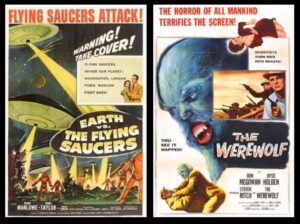 I was such a scaredy-cat at 8 years old. All I can remember of two particular movies in 1956 was that I kept my eyes closed during the entirety of each film. I have just discovered, through Wikipedia, that
I was such a scaredy-cat at 8 years old. All I can remember of two particular movies in 1956 was that I kept my eyes closed during the entirety of each film. I have just discovered, through Wikipedia, that  I just placed the latest “deep field” photo from the new James Webb Space Telescope to my home screen on my iPhone. This is a time exposure photo of a portion of the night sky the size of a grain of sand held at arms-length. Thousands of galaxies appear as we look back billions of years. Each galaxy has billions of stars — each star is not unlike our sun.
I just placed the latest “deep field” photo from the new James Webb Space Telescope to my home screen on my iPhone. This is a time exposure photo of a portion of the night sky the size of a grain of sand held at arms-length. Thousands of galaxies appear as we look back billions of years. Each galaxy has billions of stars — each star is not unlike our sun. My wife and I tend to be news junkies. Each evening we record the ABC World News Tonight and the PBS NewsHour. And, each evening, we watch both, mercifully skipping the commercials. Katie did not share our news addiction and turned us on to a “new drug” — Grey’s Anatomy.
My wife and I tend to be news junkies. Each evening we record the ABC World News Tonight and the PBS NewsHour. And, each evening, we watch both, mercifully skipping the commercials. Katie did not share our news addiction and turned us on to a “new drug” — Grey’s Anatomy.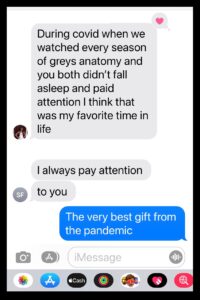 Last week, out of the blue, Katie texted us, “During covid when we watched every season of Grey’s Anatomy and you both didn’t fall asleep and paid attention I think that was my favorite time in life.” (I will not comment on the falling asleep or paying attention part, but I really did enjoy the series.)
Last week, out of the blue, Katie texted us, “During covid when we watched every season of Grey’s Anatomy and you both didn’t fall asleep and paid attention I think that was my favorite time in life.” (I will not comment on the falling asleep or paying attention part, but I really did enjoy the series.)


 I lived a few doors down from Scott and his family for four years. His sisters babysat my kids. I was Scott’s den leader in Cub Scouts. As disease ravaged his young body, Scott graduated from college in a wheelchair. I was so privileged to be a part of his care.
I lived a few doors down from Scott and his family for four years. His sisters babysat my kids. I was Scott’s den leader in Cub Scouts. As disease ravaged his young body, Scott graduated from college in a wheelchair. I was so privileged to be a part of his care.
 This is how David Brooks starts a recent
This is how David Brooks starts a recent 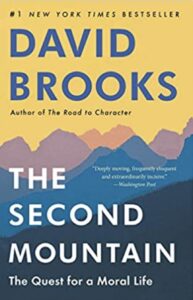 Gradually, for some people, a new core narrative emerges answering the question, “What am I to do with this unexpected life?” It’s not that the facts are different, but a person can step back and see them differently. New frameworks are imposed, which reorganize the relationship between the events of a life. Spatial metaphors are helpful here: I was in a dark wood. This train is not turning around. I’m climbing a second mountain.
Gradually, for some people, a new core narrative emerges answering the question, “What am I to do with this unexpected life?” It’s not that the facts are different, but a person can step back and see them differently. New frameworks are imposed, which reorganize the relationship between the events of a life. Spatial metaphors are helpful here: I was in a dark wood. This train is not turning around. I’m climbing a second mountain.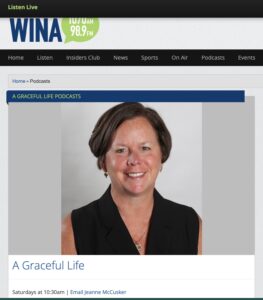
 Another change in the last 40 years has been the increased use of advance directive documents like living wills and durable powers of attorney for healthcare. About half the adult population now has such papers.
Another change in the last 40 years has been the increased use of advance directive documents like living wills and durable powers of attorney for healthcare. About half the adult population now has such papers. Several years ago, I spoke at the Centra Hospital in Lynchburg, Virginia. There were about 50 people in the room, including members of the clergy, physicians, nurses, social workers, and just plain folks. I divided my presentation, the first half devoted to helping patients and families make end-of-life decisions, and the second half to the emotional and spiritual issues at the end of life.
Several years ago, I spoke at the Centra Hospital in Lynchburg, Virginia. There were about 50 people in the room, including members of the clergy, physicians, nurses, social workers, and just plain folks. I divided my presentation, the first half devoted to helping patients and families make end-of-life decisions, and the second half to the emotional and spiritual issues at the end of life. About six months after the patient died, the lady visited her friend. The now-widow said, “I made a mistake. I made the wrong decision. I should have left the tube out and let him die sooner.”
About six months after the patient died, the lady visited her friend. The now-widow said, “I made a mistake. I made the wrong decision. I should have left the tube out and let him die sooner.”
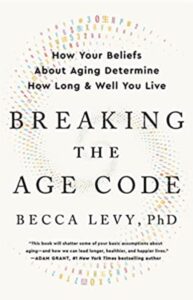 Judith Graham
Judith Graham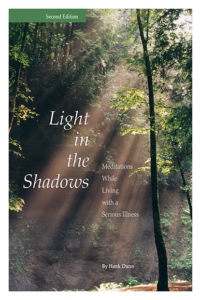
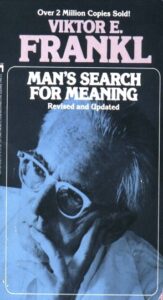 “The experiences of camp life show that man does have a choice of action.… Man can preserve a vestige of spiritual freedom, of independence of mind, even in such terrible conditions of psychic and physical stress.… We who lived in concentration camps can remember the men who walked through the huts comforting others, giving away their last piece of bread. They may have been few in number, but they offer sufficient proof that everything can be taken from a man but one thing: the last of the human freedoms—to choose one’s attitude in any given set of circumstances, to choose one’s own way.
“The experiences of camp life show that man does have a choice of action.… Man can preserve a vestige of spiritual freedom, of independence of mind, even in such terrible conditions of psychic and physical stress.… We who lived in concentration camps can remember the men who walked through the huts comforting others, giving away their last piece of bread. They may have been few in number, but they offer sufficient proof that everything can be taken from a man but one thing: the last of the human freedoms—to choose one’s attitude in any given set of circumstances, to choose one’s own way.